Supplemented iodine increases the production of thyroid hormones in fish

Several reports have indicated a correlation in salmonids between thyroid functions and the physiological aspects of smoltification, which prepares juvenile fish for the transition from freshwater to seawater environments. Fish with higher levels of thyroid hormones have better development and growth.
Hatchery-produced salmonids have a natural iodine deficiency because this element is not available in their feeds, and thus can not produce adequate amounts of thyroid hormones. If thyroid hormone levels are low, the interrenal cells increase the secretion of cortisol to cope with the extrametabolic needs that would otherwise be controlled by sufficient thyroid hormones. During times of stress, fish that are iodine-deficient may produce more cortisol than iodine-sufficient fish, thus exacerbating the stress response.
Iodinated feed and stress
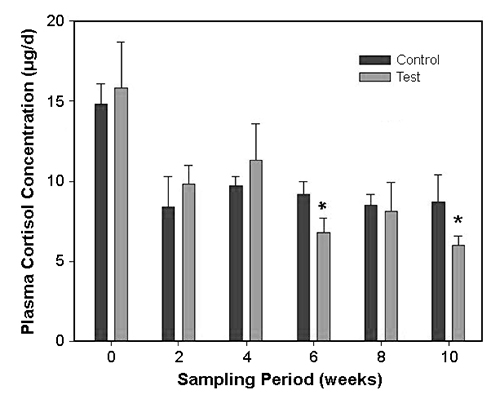
Stress affects the physiology of fish by suppression of their immune system, increased respiratory and circulatory rates, a metabolic switch from anabolism to catabolism, and impaired ability to maintain ion balance. These in turn affect osmoregulation, reduce growth, and increase the susceptibility to diseases.
In a recent study at Purdue University in Fort Wayne, Indiana, USA, the author hypothesized that when provided with iodine, the thyroid would increase the production of thyroid hormones. This would reduce the need of the interrenal cells to secrete excess cortisol and thereby reduce the effects of stress. The study investigated the effects of iodinated feed to modulate stress and compared blood cortisol, glucose, and thyroid hormone levels and growth of fish.
Experimental setup
One hundred and sixty steelhead trout (Oncorhynchus mykiss) with a mean weight of 70 grams were placed in two control and test groups with two replicates each and maintained in an optimum aquatic environment. The test groups were fed iodinated feed treated with potassium iodide at 20 milligrams per kilograms feed, and the control groups were fed regular feed.
The fish were exposed to physical stressors every day for about two minutes to elicit a typical stress and then sampled every two weeks for 12 weeks. Samples were evaluated for length and weight, blood hematocrit, glucose, cortisol levels (stress levels), and T3 and T4 thyroid hormones.
Results
Fish fed iodinated feed had higher levels of thyroid hormones, lower blood stress levels, and better growth. The consistently increased levels of plasma thyroid hormones and decreased levels of plasma cortisol suggested that supplementation of iodine in the feed was elevating the levels of thyroid hormones and decreasing the levels of cortisol.

In stressed salmonids, elevated levels of cortisol usually reduce the conversion of T4 to T3 or increase the clearance rate of T3. Smoltification has also been associated with reduced T4 to T3 conversion.
In this study, stressed fish fed regular feed had higher levels of cortisol and lower levels of thyroid hormones, suggesting the levels may have resulted from increased T4 to T3 conversion, followed by further deiodination or clearance of T3, or decreased T4 production and either decreased T4 to T3 conversion or increased T3 clearance. On the other hand, fish fed iodinated feed had increased levels of thyroid hormones in the plasma due to the increased production or decreased clearance rate of the thyroid hormones.
Conclusion
From this study and others, it appears that supplemented iodine increases the production of thyroid hormones in fish, which subsequently reduces the stress hormone cortisol and also improves fish growth. Used with other husbandry practices, iodized feed could improve the growth and survival of cultured salmonids like steelhead trout.
(Editor’s Note: This article was originally published in the April 2003 print edition of the Global Aquaculture Advocate.)
Now that you've reached the end of the article ...
… please consider supporting GSA’s mission to advance responsible seafood practices through education, advocacy and third-party assurances. The Advocate aims to document the evolution of responsible seafood practices and share the expansive knowledge of our vast network of contributors.
By becoming a Global Seafood Alliance member, you’re ensuring that all of the pre-competitive work we do through member benefits, resources and events can continue. Individual membership costs just $50 a year.
Not a GSA member? Join us.
Author
-
Ahmed Mustafa, Ph.D.
Department of Biology
Indiana University –
Purdue University
Fort Wayne, Indiana 46805 USA[117,100,101,46,119,102,112,105,64,97,97,102,97,116,115,117,109]
Tagged With
Related Posts
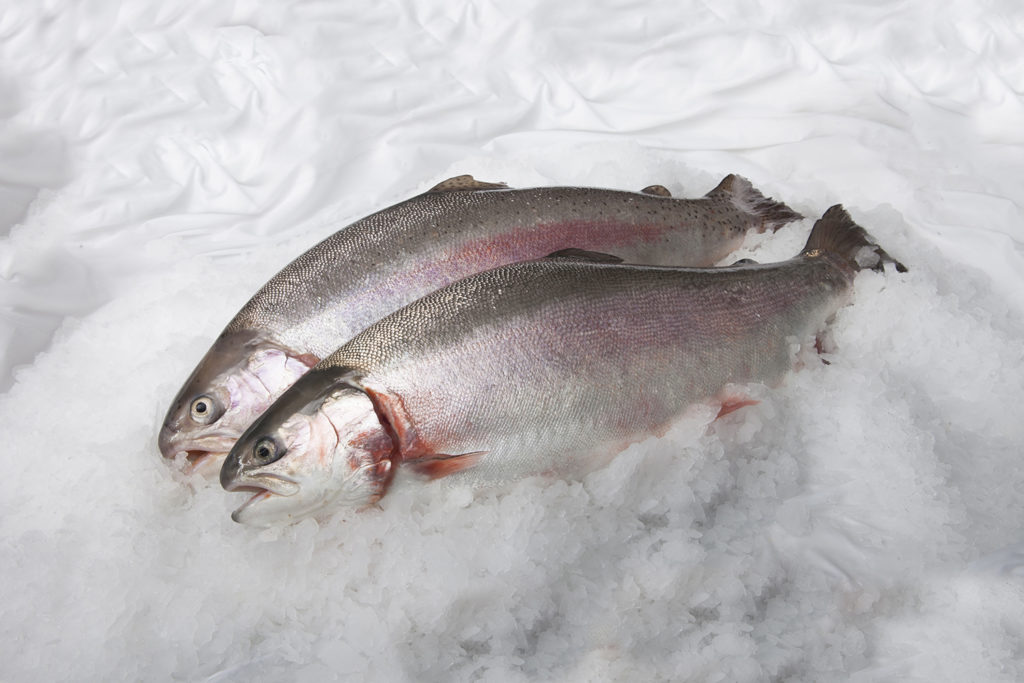
Innovation & Investment
Developments in closed-containment technologies for salmonids, part 1
The recent 2017 Aquaculture Innovation Workshop in Vancouver brought together numerous stakeholders involved in and interested in fish farming – particularly salmonids – in the growing industry of closed-containment systems.
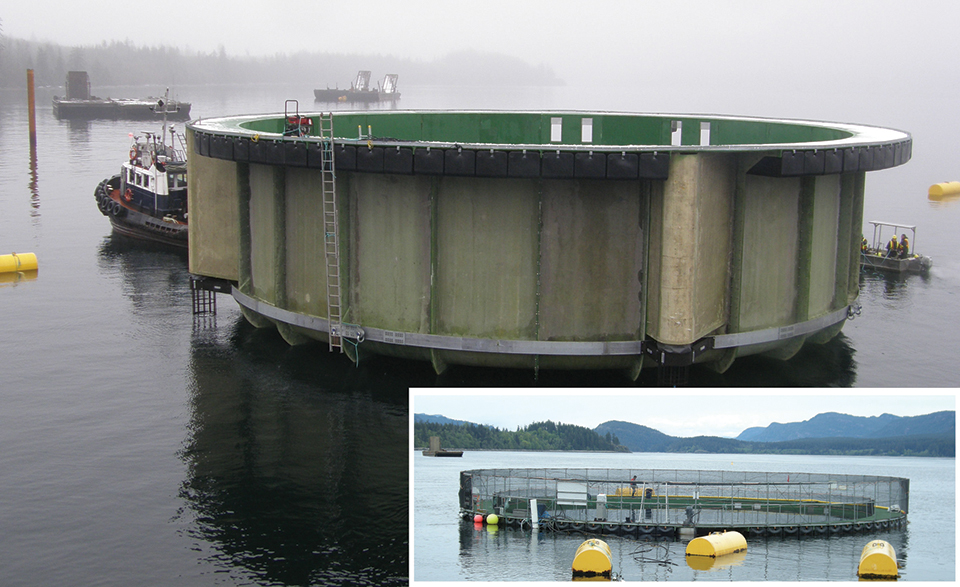
Health & Welfare
Floating closed-containment aquaculture
Floating closed-containment systems incorporate low-pressure pumping, oxygen supplementation, solid-waste separation and efficient feed management.
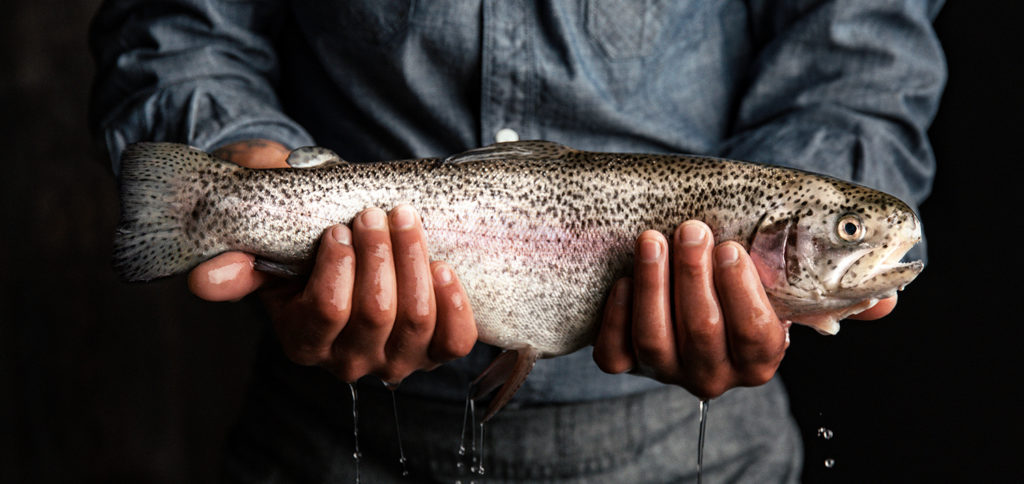
Intelligence
From the Hollywood Hills to the raceways of Riverence
Six-year-old Riverence Holdings, founded by a cattle rancher and a Hollywood TV producer, is now the largest land-based trout producer in the Americas.
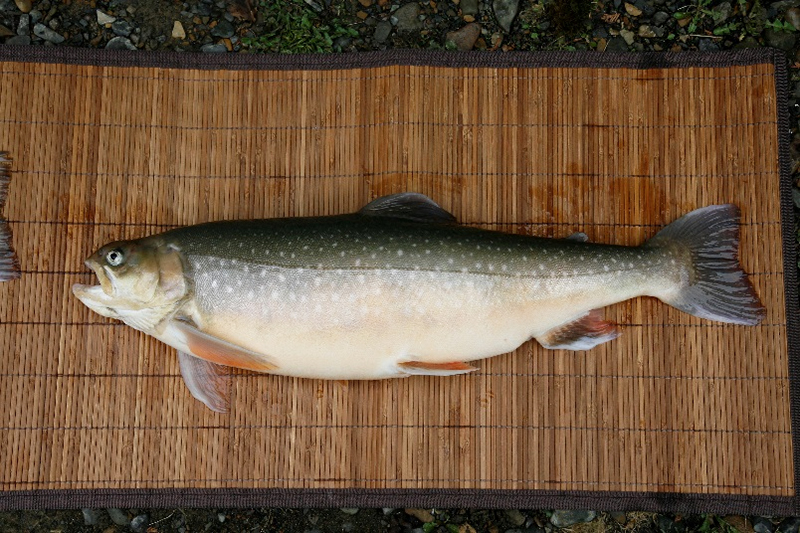
Intelligence
Project seeks to synergize Canada’s Arctic charr industry
A project to develop Arctic charr culture and commercialization in Canada involves governmental and non-governmental agencies, universities and research institutes, and Canadian producers from eight provinces and territories of Canada.


